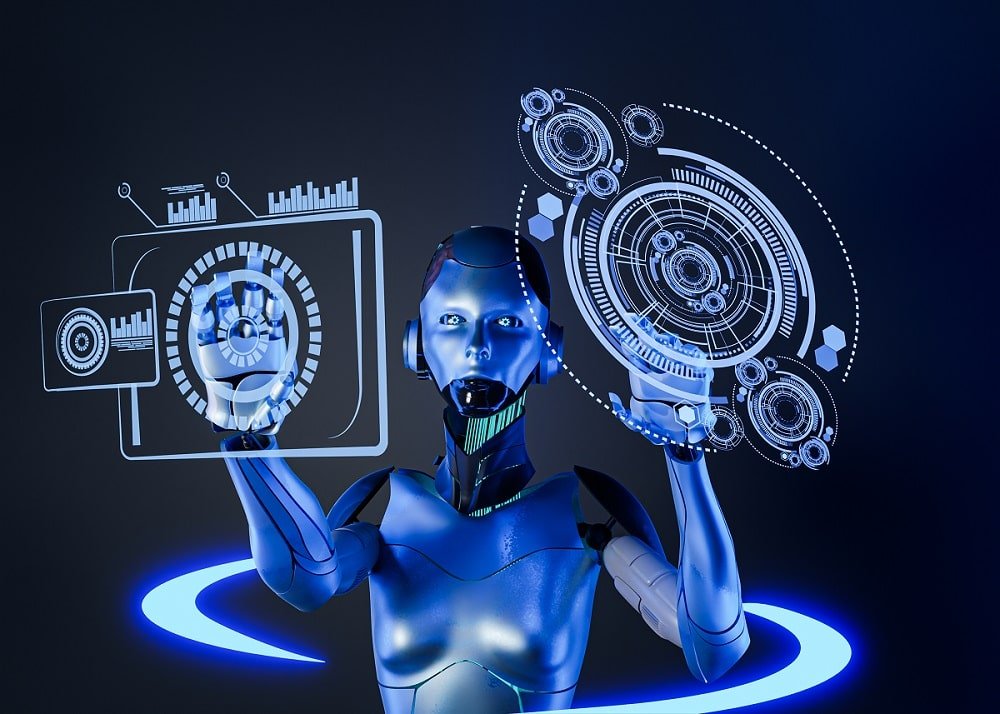Introduction
In the realm of data-driven decision-making, the role of machine learning in predictive analytics stands as a beacon of insight, guiding businesses toward informed strategies and actions. At the heart of this predictive prowess lies machine learning, an innovative technology that empowers systems to learn from data and make predictions with remarkable accuracy. This article delves deep into the multifaceted landscape of predictive analytics, unveiling the indispensable role that machine learning plays in shaping its trajectory.
Understanding Machine learning in predictive analytics

Predictive analytics is a transformative discipline that leverages historical data, statistical algorithms, and machine-learning techniques to forecast future outcomes. By analyzing patterns and trends within datasets, predictive analytics empowers organizations to anticipate events, mitigate risks, and capitalize on emerging opportunities. From financial forecasting to healthcare management, its applications span across diverse industries, driving efficiency and strategic decision-making.
The Evolution of Machine Learning
Machine learning, a subset of artificial intelligence, has undergone a remarkable evolution in recent years. From traditional statistical methods to advanced deep learning algorithms, its journey has been characterized by exponential growth and innovation. Today, machine learning algorithms can process vast amounts of data, identify complex patterns, and continuously improve their predictive capabilities through iterative learning processes.
The Intersection of Machine Learning and Predictive Analytics
At the crux of predictive analytics lies machine learning, serving as its cornerstone technology. By harnessing the power of machine learning algorithms, predictive analytics models can discern hidden insights within data, uncovering correlations and patterns that human analysts may overlook. This symbiotic relationship between machine learning and predictive analytics empowers organizations to extract actionable intelligence from vast datasets, driving innovation and competitive advantage.
Applications Across Industries
Finance
In the financial sector, machine learning plays a pivotal role in risk management, fraud detection, and algorithmic trading. By analyzing market trends and historical data, machine learning models can forecast stock prices, optimize investment portfolios, and detect fraudulent transactions with unprecedented accuracy.
Healthcare
In healthcare, predictive analytics powered by machine learning holds the promise of revolutionizing patient care and treatment outcomes. From predicting disease outbreaks to identifying personalized treatment plans, machine learning algorithms can analyze electronic health records and medical imaging data to deliver tailored interventions and improve clinical decision-making.
Marketing
In the realm of marketing, machine learning algorithms drive targeted advertising campaigns, customer segmentation, and personalized recommendations. By analyzing consumer behavior and preferences, predictive analytics enables marketers to optimize their strategies, enhance customer engagement, and maximize return on investment.
People Also Read: Leveraging Technology for Distance Learning
Manufacturing
In the manufacturing sector, machine learning facilitates predictive maintenance, quality control, and supply chain optimization. By analyzing sensor data from equipment and production lines, predictive analytics models can anticipate equipment failures, minimize downtime, and streamline operations for enhanced efficiency and cost savings.
Leveraging Machine Learning for Predictive Insights
Enhancing Accuracy
Machine learning algorithms excel at processing large volumes of data and identifying intricate patterns, leading to more accurate predictions and insights. By leveraging machine learning for predictive analytics, organizations can enhance the accuracy of their forecasts and decision-making processes, mitigating risks and capitalizing on opportunities.
Improving Efficiency
Automation lies at the heart of machine learning-powered predictive analytics, enabling organizations to streamline processes and optimize resource allocation. By automating repetitive tasks and data analysis processes, machine learning accelerates decision-making and frees up human resources for more strategic endeavors.
Enabling Personalization
One of the most compelling advantages of machine learning in predictive analytics is its ability to deliver personalized experiences and recommendations. By analyzing individual preferences and behavior patterns, machine learning algorithms enable organizations to tailor products, services, and marketing campaigns to meet the unique needs of each customer.
FAQs (Frequently Asked Questions)
Q1: How does machine learning contribute to predictive analytics?
A: Machine learning enhances predictive analytics by empowering algorithms to learn from data, identify patterns, and make accurate predictions, enabling organizations to anticipate future outcomes with confidence.
Q2: What are some real-world applications of predictive analytics powered by machine learning?
A: Predictive analytics powered by machine learning finds applications across various industries, including finance (risk management, fraud detection), healthcare (disease prediction, personalized treatment), marketing (targeted advertising, customer segmentation), and manufacturing (predictive maintenance, quality control).
Q3: How does machine learning improve the efficiency of predictive analytics processes?
A: Machine learning automates data analysis tasks, accelerates decision-making processes, and enhances the accuracy of predictive models, thereby improving the overall efficiency of predictive analytics initiatives.
Q4: Can machine learning enable personalized experiences in predictive analytics?
A: Yes, machine learning algorithms analyze individual data points to deliver personalized recommendations, product offerings, and marketing messages, thereby enhancing customer satisfaction and engagement.
Q5: What role does machine learning play in predictive maintenance?
A: Machine learning algorithms analyze sensor data from equipment to predict maintenance needs, anticipate failures, and optimize maintenance schedules, thus minimizing downtime and maximizing operational efficiency.
People Also Read: The Future Of Healthcare: How AI Technology Is Transforming
Q6: How can organizations leverage machine learning for strategic decision-making?
A: By harnessing machine learning-powered predictive analytics, organizations can gain deeper insights into market trends, customer behavior, and operational dynamics, enabling them to make informed decisions and stay ahead of the competition.
Conclusion
In conclusion, the role of machine learning in predictive analytics cannot be overstated. As organizations strive to harness the power of data to drive innovation and competitive advantage, machine learning emerges as a transformative force, enabling predictive insights that shape strategic decision-making across industries. By leveraging machine learning algorithms for predictive analytics, organizations can unlock new opportunities, mitigate risks, and chart a course toward a future defined by data-driven excellence.
